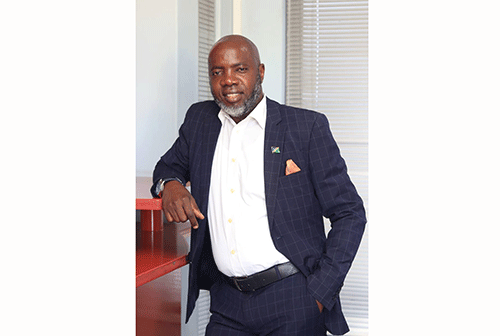The proposed merger between the Namibia Press Agency and New Era Publication Corporation is still hanging in the balance, with no concrete paperwork done to set the unification process in motion.
This revelation was made by Ministry of Information and Communication Technology (MICT) executive director Audrin Mathe during an interview with this reporter on New Era’s flagship talk show, ‘One the Spot’, which airs this Friday.
The discussion was centred on the ministry’s ambitions, the state of the media industry and the implementation of the Access to Information Act, amongst others.
In 2021, Cabinet approved a plan to merge Nampa and New Era. It, however, turns out that little has happened to actually implement this plan, an attempt to avoid possible duplication of roles and cut costs.
“I have no idea whether there was a consultant [hired]. But obviously, I am aware of the fact that the cabinet had resolved that the two institutions be merged. I have not had sight of any paperwork that was done to consolidate that decision.
“Sometime last year, the minister of ICT, [Peya] Mushelenga and I, together with the deputy minister, spoke about that resolution and its intended effect. Obviously, consultations are underway at the moment. As things progress, we’ll be able to say something,” Mathe said.
For the current financial year, the two entities were allocated a combined N$54 million in the national budget. State broadcaster NBC, on the other hand, received N$392 million.
Additionally, Mathe also reflected on the performance of public-funded media houses, which, according to him, leaves a lot to be desired.
The seasoned executive also took time
to discuss the establishment of the information commissioner’s office, which will implement the Access to Information Act. “We’re at a stage where regulations have been formulated. The process of consultation on those regulations will commence soon afterwards. Once the consultation process has been completed, the minister will obviously gazette the regulations. At that point, only can the process of recruitment of the information commissioner begins. The information commissioner himself or herself will then undertake the process of creating a structure of the institution and determine the next steps,” he elaborated.
Mathe went on: “That will essentially end the role of the ministry. Because this is an independent body. It’s actually an independent body in the mode of the Anti-Corruption Commission that they make their own decisions and have their own accounting officers and all of that”.
For the current financial year, N$20 million has been set aside to set implementation in motion.
“This is part of the government’s HPP, where we say governance is one of the pillars that will underpin our next steps. That will mean any person in the country will have the right to access information that is in the possession of any institution – private or government [owned]. I think there is a misconception that this is only targeting government [entities],” he clarified.
He was quick to point out that in exceptional cases, such as privileged information between legal practitioners and their clients, confidential Cabinet documents or security information may not be accessed, even in the face of the Access to Information Law.
“One of the reasons cited was the absence of access to information law. But now that the law is there; hopefully, our rankings go back to where it was – perhaps even higher – globally,” emphatically stated the ED.
– emumbuu@nepc.com.na



